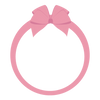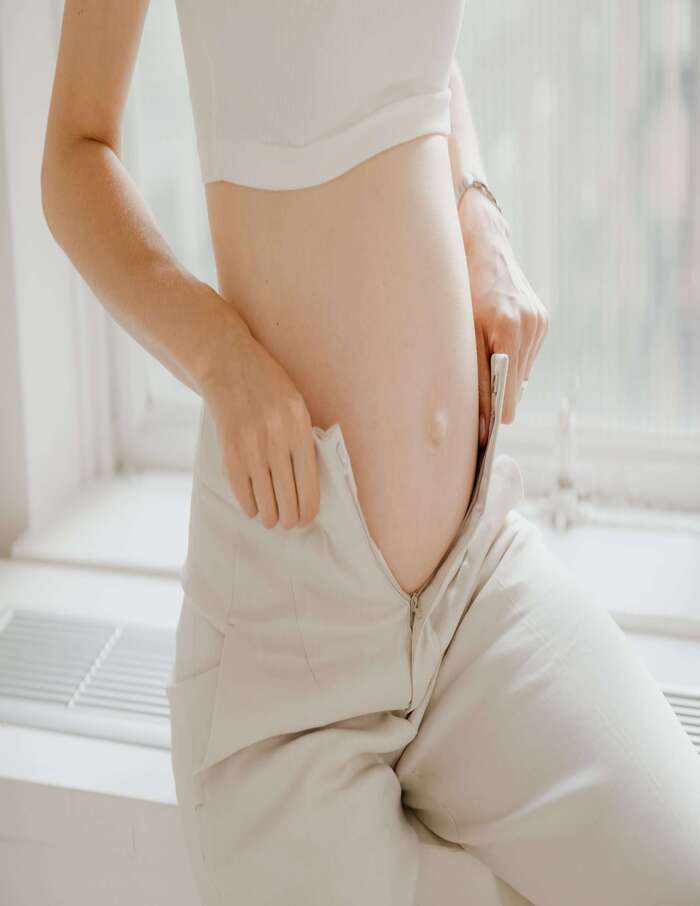Irregular periods? Having trouble losing weight? Excessive hair growth?
These are usually signs of Polycystic Ovaries Disorder or Syndrome
What is PCOD?
PCOD is a disorder that affects your hormone levels causing an imbalance. The symptoms of PCOD problem in females include but isn’t restricted to - hair growth on face and body, hair loss, mood fluctuations, weight gain, acne, skin darkening, slow metabolism and infertility. Studies reveal that it may also put women at risk of developing heart disease, type 2 diabetes, and mental health illness like depression and anxiety.
Is PCOD curable?
PCOD is incurable but can be controlled with medicines. Although the exact reasons for PCOD seems undetermined, factors like: genes, family history and lifestyle or environment play an important role.
Your health care provider will ask you about your cycle and perform physical examination.
Doctors diagnose PCOD in women who have at least two of these symptoms –
- High testosterone levels
- Irregular menstrual cycles
- Cysts in the ovaries
One in five women in India have been diagnosed with PCOD; most between the age of 15 to 30 years of age. We’ll tackle commonly asked questions one by one.
What can I do about having PCOD?
There are no magical solutions for PCOD. The first and most essential step is working towards a healthy lifestyle.
Gaining weight
PCOD actively makes it hard for your body to use insulin.
Healthy diet and exercise will help regularize your period cycle, improve insulin resistance, ovulation, and there by pregnancy rate.
What’s a healthy diet for PCOD?
Low carb intake
Carbohydrates impact your insulin levels.
You can use a tracker if it helps staying within your daily intake limits.
Increasing Fiber, Protein and Healthy Fats
The calories you cut down in carbs can be compensated with these food groups:
- Fiber will helps you feel full and studies have revealed that it even lowers insulin resistance, body fat, especially stubborn belly fat.
- Protein helps reduce cravings and burn more calories.
- This food group has been wrongly criticized. Fats generally aren’t bad for you. In fact, they’re a vital part of your daily nutrition, but it is important you procure this from the right source – healthy fats.
Avoiding junk, processed food and sugar
More fruits, veggies and salads!
Change your lifestyle, not a diet.
Blindly following crash diets will leave you feeling tired, sleepy, and doesn’t yield results. It is important you make alterations to your lifestyle and be mindful of what you consume. Have cheat meal once a week to reward yourself for your progress.
Exercise
A workout routine doesn’t have to be drastic. Even 30 mins of walking everyday improves your body.
While healthy diet and exercise are both important, lifestyle changes include finding means to manage stress, sleep better and the right supplements and medicines for PCOD that work for you.
Acne
Skin cells and hair follicles are extremely sensitive to changes in your testosterone levels. A slight increase might reflect in the form of acne. Do consult with a dermatologist before using over the counter products or medicines.
Hair growth and loss
The increase in testosterone is responsible for both your hair loss and growth. Androgens trigger hair thinning of scalp. There are physicians recommended oral medicines, shampoos available for treating this.
While you’re losing hair on your scalp, there’s hair growing faster on your face, arms, sometimes even on your breast. A lot of women tend to thread, shave, wax or in extreme cases get laser treatment to get rid of unwanted hair.
Dark Patches
Women with PCOD often find dark patches on the back of their neck, under arms, and near groin area. This is caused by the increased levels of insulin in their blood.
Mental health
Mental health is considered taboo in certain parts of India, but it is essential everybody has an accessible safe space to openly discuss their mental illness without judgements.
Women with PCOD are three times more likely to experience depression and anxiety.
Studies have identified body image related issues are a crucial contributing factor, combined with the incurable nature and complexity of PCOD that often leaves one feeling helpless.
What is the treatment for PCOD?
The most common form of treatment is birth control pill. It is prescribed as they contain the hormones required to:
- Prevent unplanned pregnancy
- Regulate period cycle
- Rectify the imbalance of hormones
- Lower testosterone levels
There are many other PCOD medications and treatment alternatives available: natural treatment, Ayurvedic treatment, allopathic and even, homeopathic treatment options. Find out what works best for you.
Practice Self-Love
Women with PCOD tend to have lower self-esteem. Historically women have been considered attractive for their health and fertility and it has constructed today’s societal beauty standards. Practicing self-love means challenging the idea that there is only one kind of beauty and understanding that we, as women, are more than our beauty alone. We are strong, brilliant, compassionate, talented and resilient. That makes us worthy too
Information is power
Being diagnosed and aware of your disorder gets you one step closer to managing it. Many women are not aware of PCOD and its consequences; many of us are silently suffering the symptoms of PCOD. The symptoms are often misunderstood for laziness, bad diet or self-care. This is why it makes a significant difference when you talk, share your experiences and educate others.


